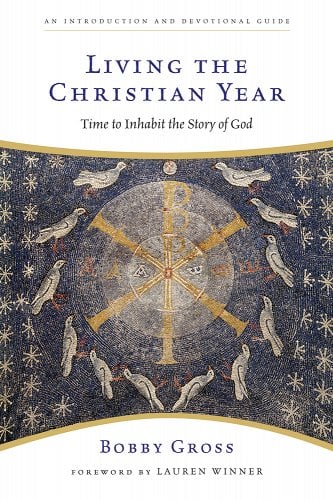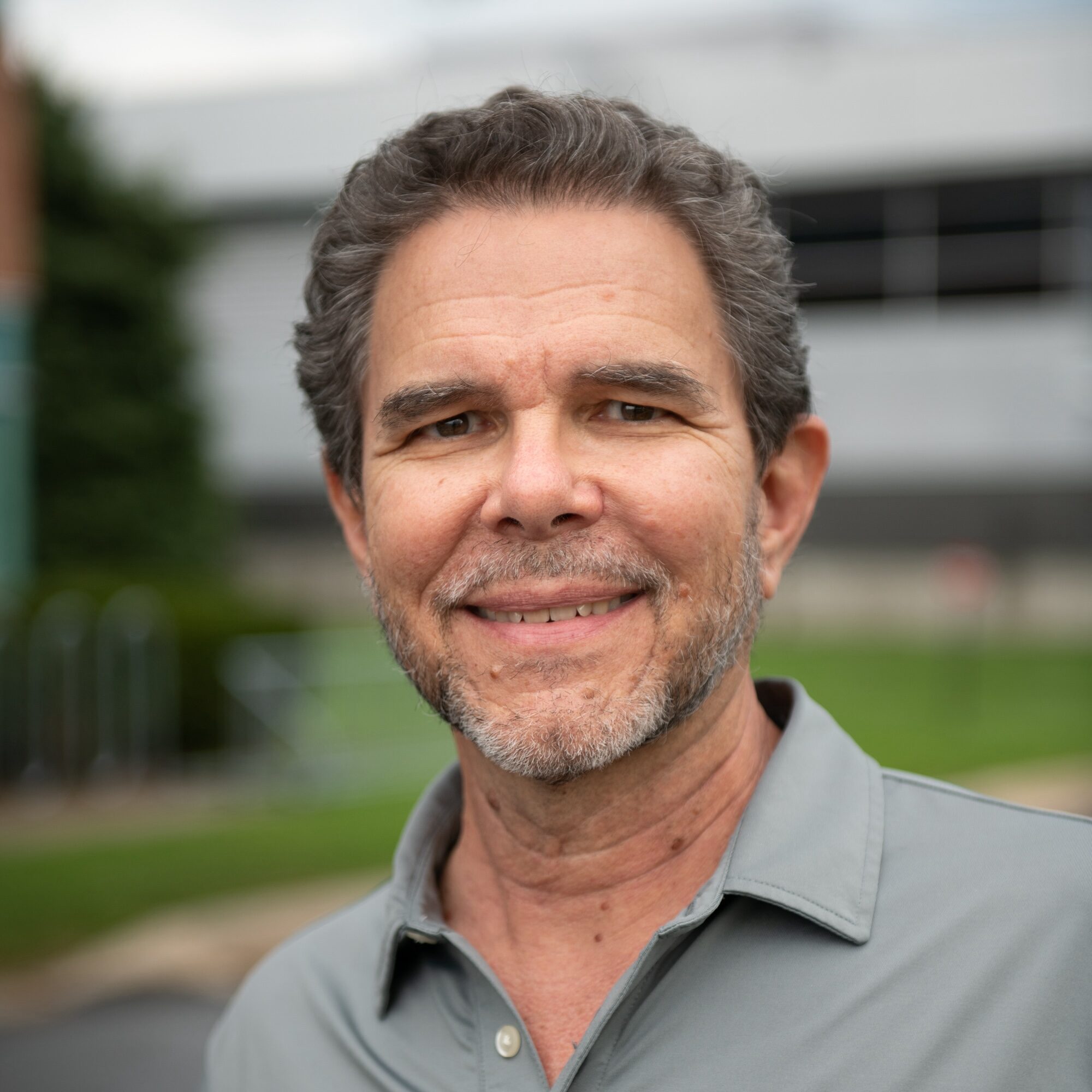A meditation from our third annual Advent Art Salon
from Bobby Gross, shared on December 13, 2023
Every breath a birth.
This lovely and slightly enigmatic phrase, the theme of our Salon and my meditation, is taken from a poem in the Advent chapbook by Anya Krugovoy Silver (first published in Image issue 66).
Advent, First Frost
Something has descended
like feathered prophecy.
Someone has offered the world
a bowl of frozen tears,
has traced the veins and edges
of leaves with furred ink.
The staff is stiff as the strings
of a lute.
And, day by day, the tiny windows
crack their cardboard frames
seizing the frail light. The sun,
moving through
these waxy squares, undiminished
as a word passing
from mind to speech.
Every breath a birth,
a stir of floating limbs within me.
I stay up late and waken early
to feel beneath my feet
the silence coming.
Such allusive language fit for Advent:
- feathered prophecy
- a bowl of frozen tears—someone is lamenting over our world
- the grass is stiff—recalling our human mortality
- the tiny windows in cardboard frames—suggesting perhaps a child’s Advent calendar
- the sun… undiminished as a word passing from mind to speech—a thought spoken, a Word incarnated
- a stir of floating limbs within me—a baby in utero waiting to be born?
- the silence coming—the gift of stillness, space to listen, a pregnant silence
- and every breath a birth—a line I have been pondering
I get how every birth entails a first breath. And how every death requires a last breath.
But how is every breath itself a birth?
I mean, a woman or man who lives to 80 will take about 672,768,000 breaths in a lifetime. Even discounting for the hours asleep, that would be a lot of birthing!
To start, we can certainly say that every breath is generative.
Each intake of air into our lungs oxygenates the blood which circulates to our tissues and organs and brain cells, keeping us alive, generating and sustaining our biological life.
And the idea of generative breath draws our minds to Genesis and its story about the beginnings of life, especially human life: “…then the Lord God fashioned the human, humus from the soil, and blew into his nostrils the breath of life, and the human became a living creature.” (Robert Alter’s translation)
Genesis also reminds us of the rich and mysterious overlap and interplay of meanings in the Hebrew word ruach, which can be translated breath or wind or spirit:
"When God began to create heaven and earth, and the earth then was welter and waste and darkness over the deep and God’s breath [wind, Spirit] hovering over the waters, God said, ‘Let there be light.’"
Perhaps with his every breath, God gives birth.
The teacher of Ecclesiastes wrote: “Just as you do not know how the breath comes to the bones in the mother’s womb, so you do not know the work of God, who makes everything.”
It’s from this verse that poet and writer Luci Shaw takes the title of her book of reflections on creativity and faith: Breath for the Bones. Tellingly, her subtitle is “Art, Imagination, and Spirit.”
We could say that all art comes about because some creative intuition or thought or imagining arises in a soulful mind and wants to be born, to be breathed out, to be made incarnate: a poem, an aria, a character, a line in a script, all waiting to be voiced by exhalations of breath, or envisioned actions waiting to be powered by inhalations of breath—a jeté on stage, a brushstroke on canvas, a chisel strike on marble, a scene enacted on film.
In artmaking, every breath is bringing about a birth.
This coming of breath to the bones in the womb also draws us toward the mystery of the Incarnation, especially in John’s gospel.
Echoing Genesis, he too starts with the birth of the cosmos:
"In the beginning was the Word, and the Word was with God, and the Word was God. He was in the beginning with God. All things came into being through him, and without him not one thing came into being. What has come into being in him was life, and the life was the light of people."
This Word, this grace & truth logos of being and meaning, spoke all things into existence; the Word voiced light into being, life into being, love into being, us into being.
And the Word became embryonic bones and flesh in young Mary’s womb; she felt the “stir of floating limbs within her.” She gave birth, panting fast and hard, and then the newborn took his first breath, oxygen flooding his body and brain, every bit as human as we are.
Advent and Christmas invite us to contemplate that first gasp for air by Jesus, the breathtaking enormity of it and the beautiful ordinariness of it.
With the first cry of her baby, Mary knew that what had been promised to her in a “feathered prophecy” had come to pass. But she will also have her own “bowl of tears.” Eventually, she will stand before that cruel cross, sobbing, as Jesus takes labored breath after labored breath, keeping vigil until his last one, until he gives up his spirit, as John puts it.
Can a last breath be a birth?
Ah, now we’re transported back to Ezekiel’s desolate valley, where God commands the prophet to speak: “O dry bones, thus says the Lord God: I will cause breath to enter you, and you shall live.” And with a great rattling clatter they come together, bone to bone, flesh to sinew, and “breath comes into them, and they live.”
A great foreshadowing!
Jesus’ last breath was not final; it too proved to be generative and regenerative for him and for us. John portrays the great generosity of God in the scene at the end of his gospel when the risen, respiring Jesus intimately breathes on his friends, saying: “Receive the Holy Spirit.”
As with Jesus, so with us: our final breath will be birth, birth into new and eternal life.
From January through June this year, I was on sabbatical. Since the workweek/sabbath rhythm seemed less applicable, I wanted to live in a more daily rhythm, taking inspiration from Psalm 90: Teach me to count my days so that I can live wisely. I tried to receive each day as gift and live it such that I could say at its end, “This was a good day; thanks be to God.”
Here’s what I learned made for a good day: if I gave some measure of attention to God, if I learned something new, if I loved someone well, if I accomplished something useful, if I engaged somehow with the artful, if I showed affection in some way toward my wife, Charlene, then it was a good day.
Are not these the simple things that give our lives their meaning, things we do with our breathing bodies that bring light and life and love into the world? With every breath, we can make something of ourselves and our world, we can embody what is true and good and beautiful, we can image the God who has breathed life and love into us.
As long as we’re alive, we can give birth to something good with every breath!
Pause a moment and think about what you birth each day by virtue being alive and breathing.
Lord, teach us to count our breaths.
I’ll conclude with a poem by Denise Levertov (read “In Whom We Live and Move and Have Our Being” here).
Levertov presses us into the ineffable mystery of God’s Being, in whom we live and move and have our own image-of-God, Spirit-infused being. She dares not equate herself with saints; it is enough for her, for us, to let our wings be ruffled by the Wind of God.
Whether we’re weighted with worries or pulsing in poised attention, whether caught in noisy chaos or finding quiet moments to listen for God’s whisper, it is enough just to keep breathing in the presence of the Holy One, to inhale his love, to exhale our laments, to breathe in his life, to breathe out our praise, as when we sing:
It's your breath in our lungs
So we pour out our praise
we pour out our praise
The last lines of Levertov’s poem make for a lovely breath prayer:
Slowly breathing in, we can pray: Poised in attention, I inhale,
Slowly expelling, we can pray: Encompassed, encompassed, I exhale
Let’s try it together, each in our own space (3x):
Poised in attention, I inhale (e.g., the Spirit of God, the love of God…)
Encompassed, encompassed, I exhale (e.g., in awe, in gratitude…)
May it be, friends, that in the weeks to come, whenever the cold air renders your breath visible, as on mornings “cohering in frost,” you will remember that you are indwelt by the Breath of God and encompassed by his Holy Wind.
And therefore: every breath a birth.
Amen.
In this holiday season, we are grateful for your support which catalyzes events such as the Advent Art Salon, supports artist and writer payments, and covers payroll and benefits for our small staff. Please consider supporting Image with a gift today.





